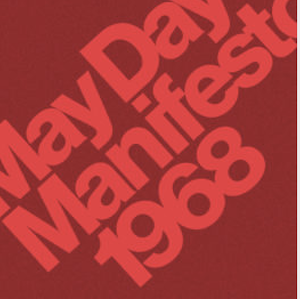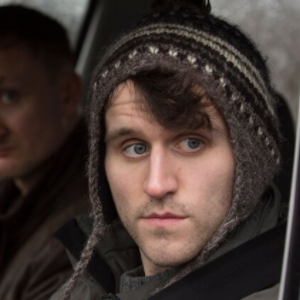Savage; The Boy to Man
By Jo Phillips
Shola Amoo’s second film is a semi-autobiographical peek into the life of a black teenager searching for his own identity within modern British society.
At a time in the UK when identity is so utterly linked to the current political environment, it is hardly surprising to see a film looking at race in Britain. However, Shola Amoo’s second film tells the tale from a different angle.
A film tracing the identity crisis of Femi, a British Nigerian boy, who moves from his childhood foster home in rural Britain to live in London with his birth mother. It’s a story that is based within his own life experience. Yet however much this film deals with coming of age, race, identity and the urban life of a black boy, it also looks at these issues from a different facet i.e. his Nigerian heritage. Often when dealing with this subject matter the heritage is usually British Caribbean yet this time it deals with the beliefs, manners, and ways of life carried to Britain from Nigeria.
The film walks the tricky path to the claustrophobic environment that Femi finds himself in. He moves from the idyllic UK countryside, with its open-air spaces, sunshine and freedom, to living in a dirty concrete city with his birth mother, Yinka, who returned to claim her son from his foster mother.
His birth mother is not in touch emotionally with her son’s needs and also brings a set of values with her that are misunderstood by the confused Femi. Her values, so based in her Nigerian culture, are values he is unaware of having never experienced them before.
The film meanders through three areas: rural UK sprawling flatlands of Lincolnshire, deprived south London and then finally Lagos, Nigeria. The film deals with all our questions of motherhood, both as a place and a person. It also explores how this theme plays out as a child becomes a young man and embarks on his own journey to mothering himself; the journey he chooses to take in order to decide for himself who he is.
The film does, of course, cross into territory we have already seen before in films that explore identity. For example, the descent into a criminal lifestyle, the choices of music (outwardly listening to rap but inwardly connecting with The Cure) and hints of first romance. But it is the camera work and soundtrack that elevate this film into a fresh angle.
Shola Amoo’s choice of a tangerine dream colour palette for the painted vista of rural Lincolnshire gives a sense of warmth, sensuality, safety and, of course, happiness. Moving to London brings a colour palette of concrete, flat and hard. Distorted sounds and image convey the frustrations, agitation and all-round emotional confusion of Femi. Shola Amoo uses the camera to close in around the disturbed Femi, who is now a street aware teenager. The film quickly moves towards seeing Femi as a strapping teenage boy navigating school with gang crime and hard city life. The claustrophobic feelings of where, what, who, why are transcribed by the very short depth of field cocooning Femi; a technique highlighting confusion despair and utter loneliness of existence and lack of clarity of his life.
As he draws towards the inevitable life of crime, the viewer is lead to ask the question will he ever make peace with himself? At this point, a male redemptive figure in the form of his teacher enters the narrative. This male authority figure manages to halt Femi’s spiral into the oblivion of the criminal underworld.

The final curtain comes via a hot, sandy, slowed down vista of Femi in Lagos, maneuvering towards his true self. A return home? A visit to himself? His mother land? The question is left beautifully hanging but certainly, there is a sense of redemption and a happier journey ahead for this now fully grown young man, in his search for what it means to be mothered.
We asked Shola Amoo for some insider details on his second film. Enjoy his answers.
- Can you tell us a little more about how this film is semi-autobiographical?
I was fostered in a rural, racially monochromatic space for a few years when I was young and I had to make the transition to the city, south London and a culture that was alien to me.
I also spoke to other British Nigerians who were fostered and merged some of my story with theirs to create a new reality.
- Can you tell us more about the film’s title and its significance?
The film’s title is in reference to the concept of the “family tree” and knowing your roots, something that is missing when we find our protagonist Femi at the start of the film.
- Can you explain how you worked on the casting and why you chose the actors you ended up working with?
We had excellent casting directors in Shaheen Baig and Aisha Walters who helped me accrue an amazing cast, it was a mixture of discovery casting and more established actors that coalesced in the most beautiful way, each performer was chosen for their naturalism and unique take on the character.
- As a director how do you choose/decide on the camera style? It has an interesting feeling of almost claustrophobia about it in some respects. How/when did you purposefully decide to use this technique?
It’s all about what informs character and story. The aim was to immerse the viewer in Femi’s perspective, which is also informed by his environment. So whilst Lincolnshire unfolds like a warm memory, with lush landscapes and air of freedom. London by contrast, feels more claustrophobic and isolating, as by that point he is in an alien environment. We use colour and sound to amplify this and switched from steady-cam to handheld.
- In the UK, we are far more familiar with seeing stories of British Caribbean families – do you feel there is a need to see far more stories on the expansive African British community here, and why do you feel we don’t see these stories so much?
I don’t know why we haven’t seen more stories from the African perspective but I’m excited by the fact that more seem to be coming through. It reminds me of how niche Afrobeats once was and it’s now the sound of the mainstream.
- How difficult do you feel it is for any young person to be able to make a film in our current climate?
The industry is constantly evolving and that presents opportunity, advances in technology have democratized the entry points. Everyone has a camera in their pocket and the internet presents the opportunity to build your audience via social media. It also enables you to access tuition in a way that was tricky before, so that gives me great hope for the next generation.
THE LAST TREE is released in UK cinemas across UK & Ireland on 27th September 2019 . www.thelasttree.film/





